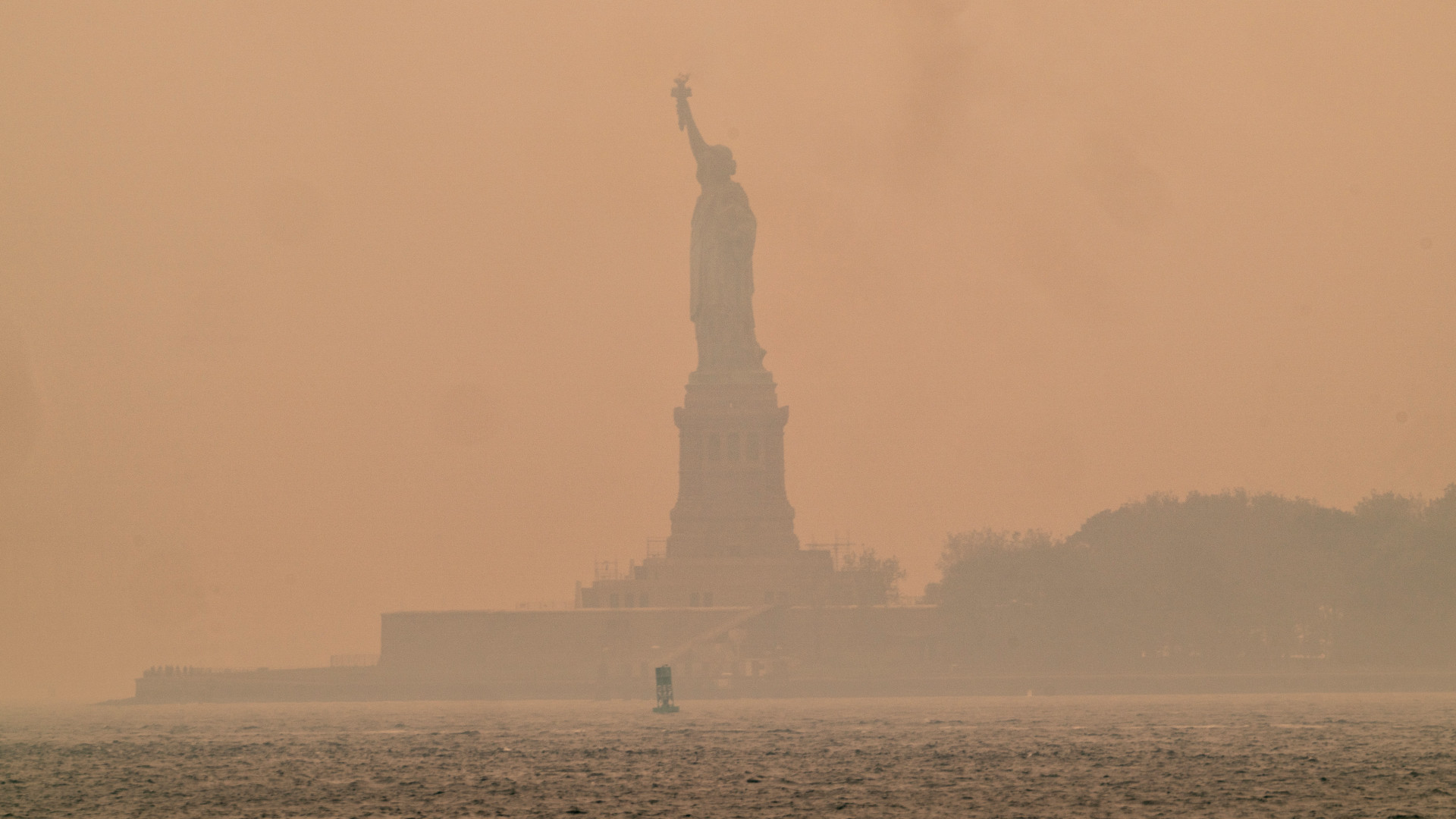Thirteen years ago, as an engineering graduate student at the Georgia Institute of Technology, I stood on a rooftop in midtown Atlanta and took in a 360-degree view of the “city in the forest.” It was a warm day, typical of spring in the southeast, but I wasn’t just sightseeing. Rather, I was trying to better understand what I couldn’t see with my eyes: the microscopic airborne particles — technically called particulate matter — that kill tens of thousands of people a year in the U.S.
Atlanta, like many major cities in the U.S., struggles with air pollution, and we know the sources — it comes from cars and trucks and industrial sites. But there are still lots of scientific questions about how it affects our health. How best to avoid the impacts of air pollution, for example? Is it better to stand on the roof of a building like I was, or on the outskirts of town? Does it matter? What about people who live and work near major roadways or industrial facilities? Are scientists capturing the air pollution and health effects that they experience?
Luckily, I had a huge dataset to help answer these questions. I had air pollution measurements for 12 different pollutants collected across 20 counties in the Atlanta area every day for six years. I developed complex statistical models to prepare the data, analyze it, and graph it. I used the data to figure out how well air pollution monitors work in epidemiologic models that help scientists understand the health effects of air pollution. After four years, I got my first peer-reviewed, first-author publication in a top journal in my field, followed by several more papers that expanded on this work. I was excited and relieved. I had finally accomplished what a young researcher dreams of: I made a small dent in the vast sphere of our scientific understanding of the world.
Rewards as a young scientist are few and far between: a paper surviving peer review, an opportunity to present at a scientific conference. But for me, as someone interested in how science affects the world, my work informing national air pollution protections felt like the ultimate prize. If I was lucky, my work would feed directly into national policy decisions — and it did.
Last year, when the Environmental Protection Agency (EPA) released its science assessment for particulate pollution, I was elated when I saw my work referenced. All three of the papers I published in graduate school were discussed and cited. That meant my work would directly inform the national ambient air quality standards designed to protect people from particulate matter — the air pollutant responsible for the most death and sickness in this country.
But the administration of President Donald J. Trump is working to prevent my scientific work from ever being considered. The administration proposed a rule last year that would restrict the science that can inform EPA decisions, with a recently leaked supplementary notice painting an even more dire picture. Specifically, the final rule could require that all the data, methods, models, and code from a scientific study be made public before EPA leaders could even consider using it to make decisions to protect public health. Ostensibly about transparency in scientific data, the proposed EPA rule would impose a series of unworkable challenges for scientists like me who want to ensure their research can help the EPA can set health-protective standards. While the revisions do discuss a menu of options for handling research from which data cannot be made available, the alternatives would still unfairly exclude or discount legitimate science.
The rule, for example, could mandate disclosure of some kinds of health-related data to outside groups or even the public. For very good reasons, however, scientists cannot release health-related data. It often contains personally identifiable information and other sensitive details about people involved in scientific studies, and researchers who work with such data undergo many steps to ensure ethical use of human subjects data.
Anyone in my lab with even a possibility of touching health data, for example, was required to receive Institutional Review Board training. This is a vital system that was implemented in the wake of unethical human experiments. Even if this data were only going to be released to a subset of people, scientists are legally and ethically bound not to release it. In the instance of older studies, scientists wouldn’t even have the opportunity to renegotiate any data agreements.
EPA leaders claim such disclosure of health data allows for independent validation of studies, but these extremes aren’t even taken as part of rigorous peer review within scientific publishing. Typically, peer-reviewers can confidently judge the merit of a study by knowing its data source, understanding the methods, and seeing the results. At no point in the peer-review process are reviewers reanalyzing raw data. Indeed, such a process would amount to a huge waste of time and resources for the benefit of maybe correcting a few math errors.
Beyond health data, the rule would in many cases require disclosure of the models and code that scientists use in their research. Scientists already disclose much of the methodology, equations, and technical approaches taken in studies. But some details of scientific work cannot be easily disclosed without undermining the practice of science itself. Research groups can spend years developing complex technical models, for example — the product of many hours of work by graduate students, post-docs, and academic faculty. These honed methods can be the lifeblood of scientific careers, ensuring that a lab can maintain an edge over competitors and continue pushing the edge of our scientific understanding.
Scientists would be reluctant to give all of that up for the purpose of informing a single policy decision at a federal agency. And so their research will be excluded.
The irony here is that scientists welcome transparency and crave scrutiny. As a young scientist, I would actively seek out the experts in my discipline at scientific conferences. I wanted them to see my results, question my methods, and tell me if I was wrong. But the EPA proposal wants to take this important process outside of the scientific arena and into the political one. Rather than have our work reviewed by other experts, it would be done by those with a political or financial stake in our results. It won’t improve our scientific understanding of issues. Rather, it will only open the floodgates to interference in the science-based policy processes that keep our nation safe and healthy.
The EPA is now undertaking a major review of the nation’s particulate matter standards. It is an opportunity to make sure we set health-protective standards on a pollutant that kills more people in the U.S. than any other. External experts have already indicated that the current standards aren’t adequate to protect people. But setting a health-protective standard would need to be based on the robust science that I and hundreds of other researchers have produced. If EPA leaders finalize this rule, that body of evidence will dwindle to nothing, allowing the Trump administration to ignore the science and avoid setting standards that would actually protect people.
I often think back to my days as a hopeful graduate student measuring air pollution on that Atlanta rooftop. I wanted my science to change the world, I still do. But the Trump administration’s efforts are shutting out that opportunity and gambling with our health. If they succeed, that downtown skyline is going to become hazier.
After all, we can’t protect public health if we don’t allow science to inform those making policy decisions.
Dr. Gretchen Goldman is the research director for the Center for Science and Democracy at the Union of Concerned Scientists.












Comments are automatically closed one year after article publication. Archived comments are below.
We live in an age of barbarism